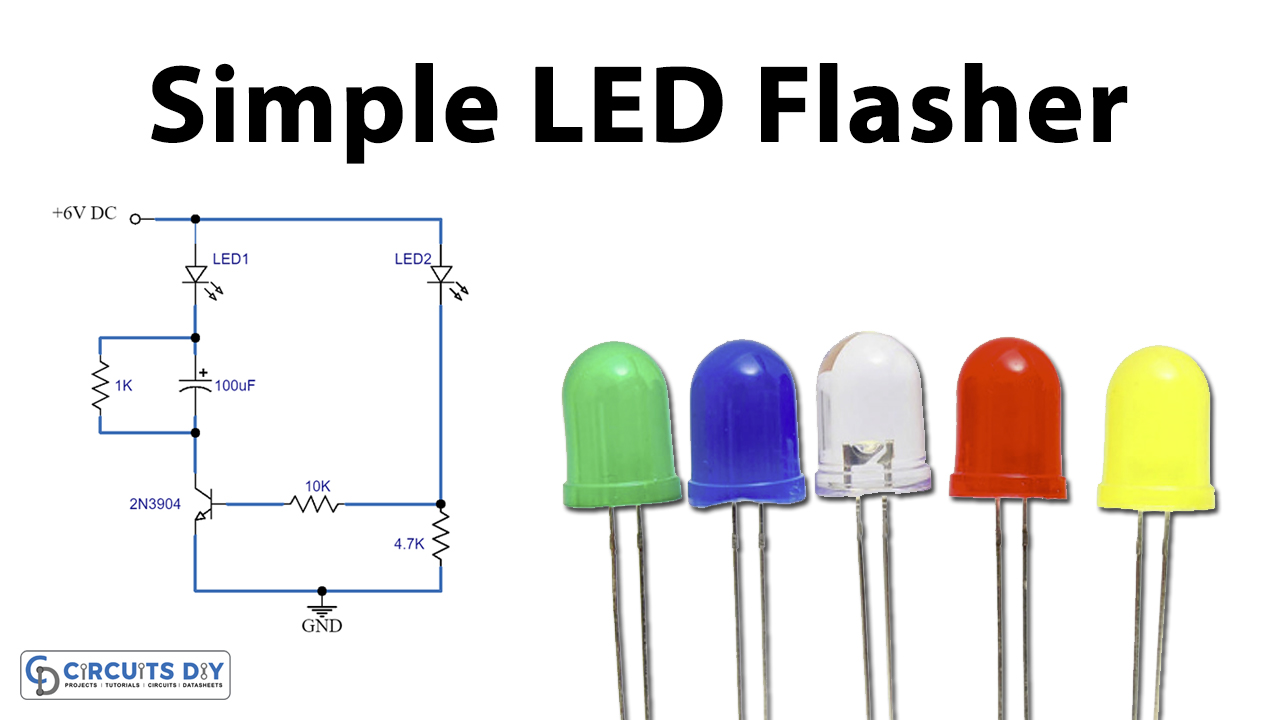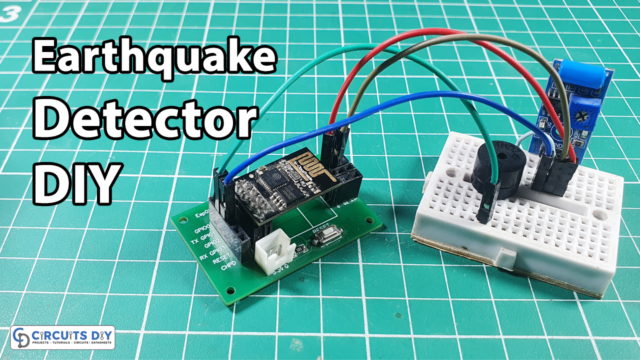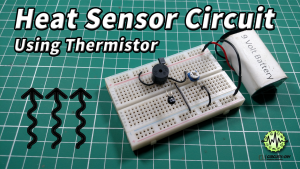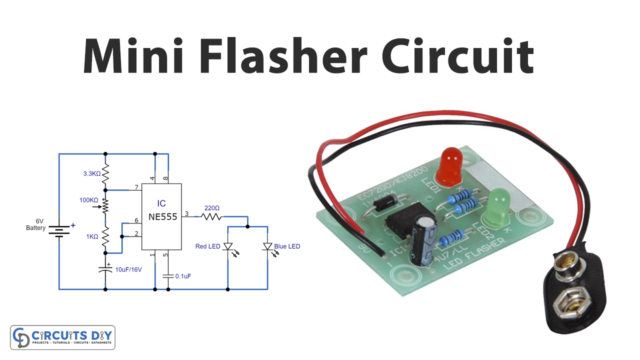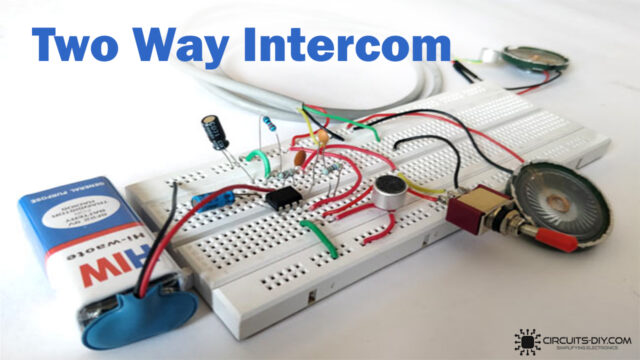LED flasher circuits are perhaps, the simplest way for electronics to say ‘HELLO WORLD’. It is a simple electronic circuit that provides a visual cue in the form of a flashing LED. An LED flasher circuit employs a voltage source, a capacitor, and an LED. In this project, we are going to build simple LED flasher circuits using a 2N3904 NPN Transistor.
2N3904 is an NPN transistor hence the collector and emitter will remain open (Reverse bias) when the base pin is held at the ground and will be short (Forward bias) when a signal is provided to the base pin. 2N3904 has a gain value of 300; this value determines the amplification capacity of the transistor. The maximum amount of current that could flow through the collector pin is 200mA. Hence, we cannot connect loads that consume more than 200mA using this transistor. To bias, a transistor we have to supply current to the base pin, this current (IB) should be limited to 5mA.
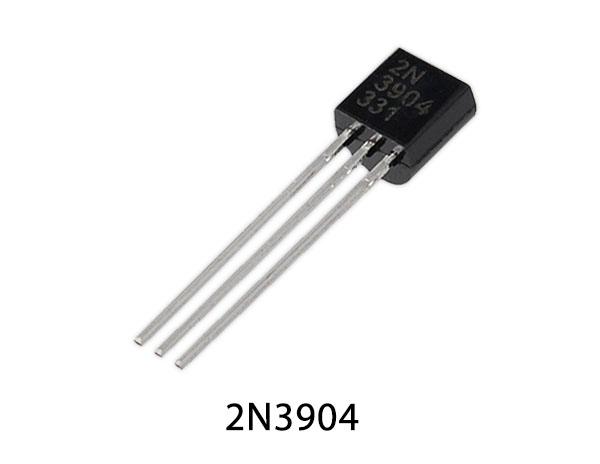
Hardware Components
The following components are required to make LED Flasher Circuit
| S.no | Component | Value | Qty |
|---|---|---|---|
| 1. | Breadboard | – | 1 |
| 2. | LED | 5mm | 2 |
| 3. | Battery | 6v | 1 |
| 4. | Transistor | 2N3904 | 1 |
| 5. | Resistor | 10k, 4.7k, 1k | 1 |
| 6. | Capacitor | 100uF | 1 |
2N3094 Pinout

For a detailed description of pinout, dimension features, and specifications download the datasheet of 2N3904
LED Flasher Circuit

Working Explanation
The above circuit is a simple single transistor LED flasher circuit which will flash a super bright LED. The circuit uses a single transistor as a driver which takes a flash rate from the 2nd LED which is a self-flashing LED.
The flash rate can be adjusted by changing the value of the 1KΩ resistor used in the circuit. The circuit is using a 2N3904 transistor but you can use any NPN transistor. The input power can be from any 6V DC battery or power supply.
Applications
- Generally used in devices such as toys and doorbells to produce flashing lights or siren effects

